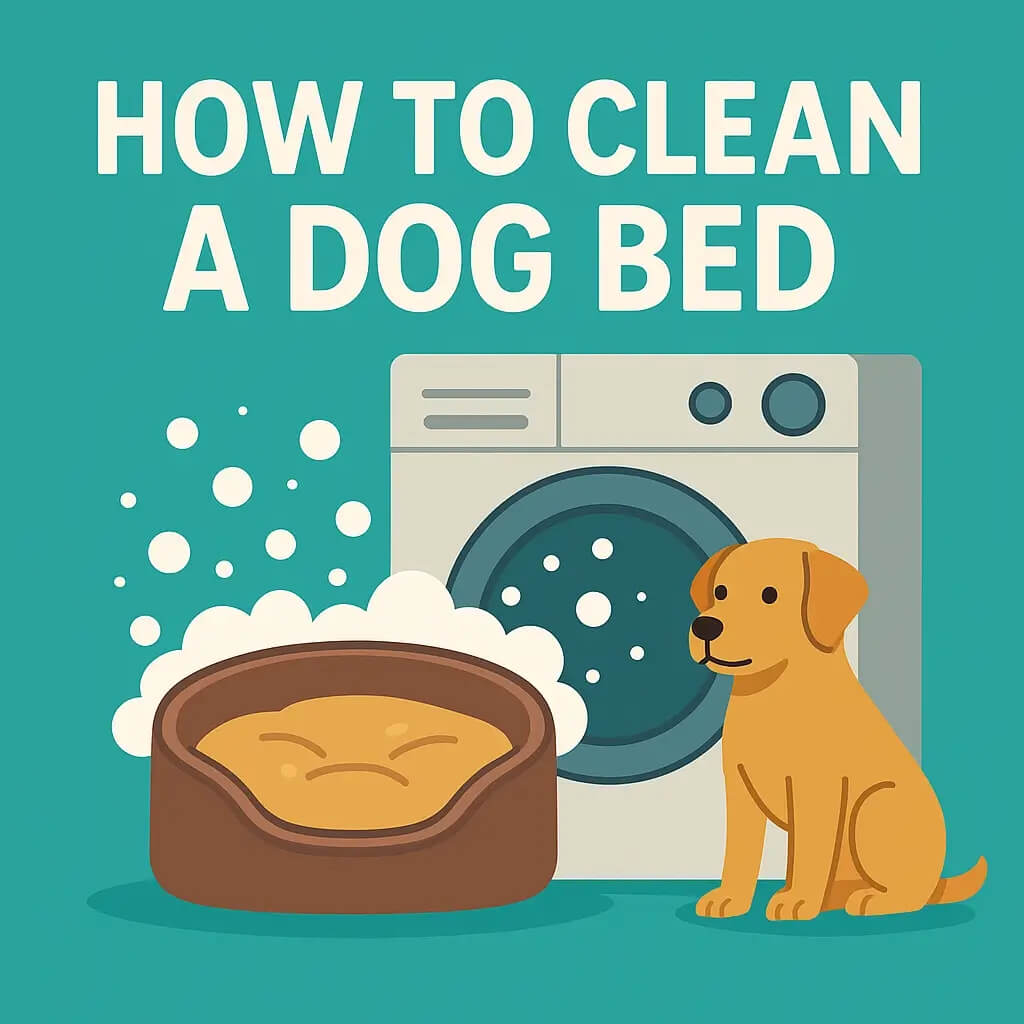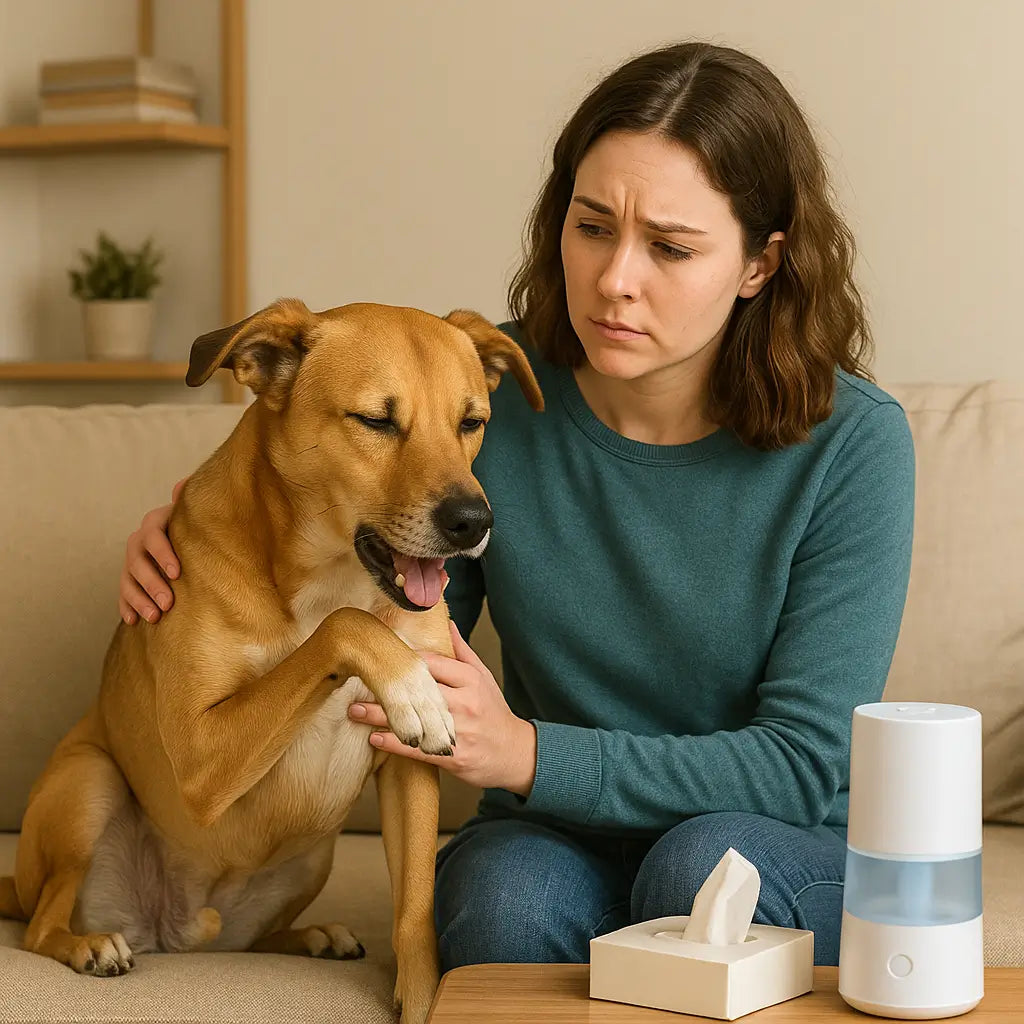Why is my dog coughing and gagging? This is a question many pet parents ask when they hear a disturbing hacking sound coming from their dog. Whether it’s a dry, persistent cough or a sudden gagging dog, it can be hard to figure out the cause. Fortunately, most coughing and gagging is related to treatable conditions, though there are some instances when it can point to a more serious condition.
Kennel cough, heart disease, respiratory infections, and even something as simple as allergies could be behind your dog’s symptoms. Understanding the underlying cause is essential, so this guide will walk you through potential causes, how to help your dog, and when you need to seek veterinary attention.
What Causes Coughing and Gagging in Dogs?
There are many potential causes for dog coughing and gagging. Here are some of the most common:
-
Kennel Cough (Bordetella)
-
Kennel cough is one of the most common causes of coughing and gagging in dogs. It’s a contagious respiratory infection caused by the Bordetella bacteria, and it often spreads quickly in places like dog parks, grooming salons, and boarding facilities. This dry cough often sounds like a goose honking and may be followed by gagging.
-
-
Heart Disease
-
Dogs with heart disease, especially older dogs, may develop a chronic cough due to fluid accumulation in the lungs. This is more common in breeds prone to heart conditions like congestive heart failure. As the heart struggles to pump blood efficiently, fluid may build up, causing coughing and difficulty breathing.
-
-
Tracheal Collapse
-
A common condition in small dog breeds, tracheal collapse occurs when the cartilage rings of the trachea weaken, causing the windpipe to narrow. This condition causes a hacking cough that often sounds like a goose honking or a noisy breathing sound. It can worsen when the dog gets excited or pulls on the leash. According to the American College of Veterinary Surgeons (ACVS), this condition is most often seen in small dogs such as Yorkshire Terriers and Chihuahuas.
-
-
Respiratory Infections
-
Respiratory infections, such as canine influenza or fungal infections, can cause coughing and gagging. Dogs with canine influenza often have symptoms similar to the flu in humans, including a persistent cough, fever, and a runny nose. Fungal infections can cause coughing and gagging as well, with symptoms sometimes escalating to include weight loss and reduced appetite. If you suspect a respiratory infection, a visit to the vet is essential for a proper treatment plan.
-
-
Foreign Objects or Irritants
-
Sometimes, a foreign body such as a stick, toy, or even food can get stuck in your dog’s throat or airways, causing a gagging response. Additionally, environmental irritants like cigarette smoke, dust, or even certain cleaning chemicals can cause a dog to cough. The American Veterinary Medical Association (AVMA) recommends keeping your dog in a clean, well-ventilated environment to prevent these irritants from triggering coughing.
-
When Should You Be Concerned?
Not all coughing and gagging are cause for alarm, but there are certain signs you should never ignore. If your dog is coughing or gagging frequently or severely, it’s important to take action:
-
Persistent or Chronic Cough
-
If your dog’s coughing lasts longer than a few days or seems to worsen over time, it could be a sign of a serious condition like heart disease or a respiratory infection.
-
-
Difficulty Breathing
-
If your dog is showing signs of difficulty breathing or their gums are turning blue, it’s a serious warning sign. Dogs who are struggling to breathe may also exhibit noisy breathing or labored breathing and should be evaluated by a vet immediately. AVMA highlights that any signs of distress require urgent care.
-
-
Other Symptoms
-
When a dog’s cough is accompanied by symptoms like weight loss, reduced appetite, or fever, it could be a sign of something more serious, such as heartworm disease or fungal infections. These symptoms, in combination with a persistent cough, should prompt a visit to the vet.
-
How to Help Your Coughing and Gagging Dog
While you wait for veterinary care, there are a few things you can do to help minimize your dog’s discomfort:
-
Keep Your Dog Calm
-
Dogs with a chronic cough or gagging should be kept as calm as possible. Stress can make symptoms worse, and excitement or exercise can exacerbate coughing. Keep your dog in a quiet area and avoid vigorous activities until you can get them evaluated by a vet.
-
-
Humidify the Air
-
Humidifiers can help loosen mucus and relieve your dog’s discomfort, especially if the cause is related to a respiratory infection or environmental irritants. Keep the air in your home clean by avoiding cigarette smoke or strong cleaning chemicals.
-
-
Provide Fresh Water
-
Ensure your dog always has access to fresh water to help soothe their throat and keep them hydrated. Hydration is essential when your dog is sick, as it can help loosen mucus and aid in the recovery process.
-
Common Treatments for Coughing and Gagging Dogs
Once your vet has identified the cause of your dog’s coughing and gagging, they will suggest an appropriate treatment plan. Here are some of the common treatments:
-
Cough Suppressants
-
In some cases, your vet may prescribe cough suppressants to help reduce your dog’s coughing. These medications work by calming the throat and reducing irritation. Always follow your vet’s instructions and never administer human cough medicine, as it can be harmful to dogs.
-
-
Antibiotics for Infections
-
If your dog’s coughing is caused by a bacterial infection, such as kennel cough or canine influenza, your vet may prescribe antibiotics. These medications can help eliminate the infection and prevent further complications.
-
-
Oxygen Therapy
-
In severe cases, such as those involving heart disease or severe respiratory distress, your vet may recommend oxygen therapy. This helps increase the oxygen levels in your dog’s blood, which is crucial for dogs suffering from fluid accumulation in the lungs or other severe respiratory issues.
-
How to Keep Your Dog Coughing-Free
Preventing your dog from developing a chronic cough or gagging episodes depends largely on controlling environmental factors, ensuring vaccinations are up-to-date, and promoting overall dog health. Here are some steps to minimize the likelihood of coughing and gagging in your dog:
-
Vaccination
-
Keeping your dog vaccinated is one of the best ways to prevent illnesses like kennel cough and canine influenza, which are highly contagious and can lead to persistent coughing and gagging. Many boarding facilities and dog parks require proof of vaccination before allowing dogs in.
-
-
Avoid Environmental Irritants
-
Cigarette smoke, dust, and strong cleaning chemicals can irritate your dog’s respiratory tract and trigger coughing or gagging. If your dog is prone to coughing, consider using air purifiers in your home, and avoid exposing your dog to secondhand smoke or other environmental pollutants. AVMA notes that exposure to such irritants can lead to chronic bronchitis and other respiratory problems over time.
-
-
Prevent Heart Disease and Respiratory Issues
-
If your dog is older, regular veterinary check-ups are crucial to catching signs of heart disease, fluid accumulation, or other lung problems. Maintaining a healthy weight, feeding your dog high-quality food, and ensuring they get adequate exercise can help prevent issues like congestive heart failure or chronic bronchitis. As your dog ages, keeping them at a healthy weight and providing heartworm preventatives, such as monthly medication, is vital for preventing heartworm disease, which can also contribute to coughing and gagging.
-
-
Reduce Stress and Excitement
-
Dogs that experience stress or excitement, especially dogs with tracheal collapse or other respiratory issues, can often trigger a gagging response. Keeping your dog calm and avoiding overly strenuous activities will help minimize episodes. If your dog has a tracheal collapse, keeping them calm and using a harness rather than a collar may help reduce pressure on their throat.
-
-
Regular Vet Checkups
-
Routine vet visits allow your veterinarian to identify underlying issues that may not be immediately apparent, such as laryngeal paralysis or heart disease. Early detection can prevent long-term damage and ensure your dog receives the appropriate treatment plan before the condition worsens.
-
Conclusion
Understanding the causes of coughing and gagging in dogs can be the first step in ensuring your dog stays healthy and comfortable. Here's a summary of the key points:
-
Kennel cough, tracheal collapse, heart disease, and respiratory infections are the most common causes of coughing in dogs.
-
Persistent coughing or gagging that worsens, or is accompanied by symptoms like difficulty breathing, weight loss, or a reduced appetite, should always prompt a visit to the vet for immediate veterinary attention.
-
Keep your dog healthy with regular veterinary care, vaccinations, and by minimizing exposure to harmful environmental irritants, including cigarette smoke.
-
In the case of respiratory issues, treatments like cough suppressants, oxygen therapy, or even surgical intervention may be needed, depending on the underlying condition.
-
Prevention is key: Regular vaccinations, maintaining a healthy weight, and keeping your dog calm during episodes can help prevent many of the causes of coughing and gagging.
By addressing these issues early and consulting with your vet about your dog’s symptoms, you can help ensure a quick recovery and long-term comfort for your dog. Taking these steps will also allow you to minimize symptoms, reduce stress on your dog’s respiratory system, and improve their overall quality of life.











